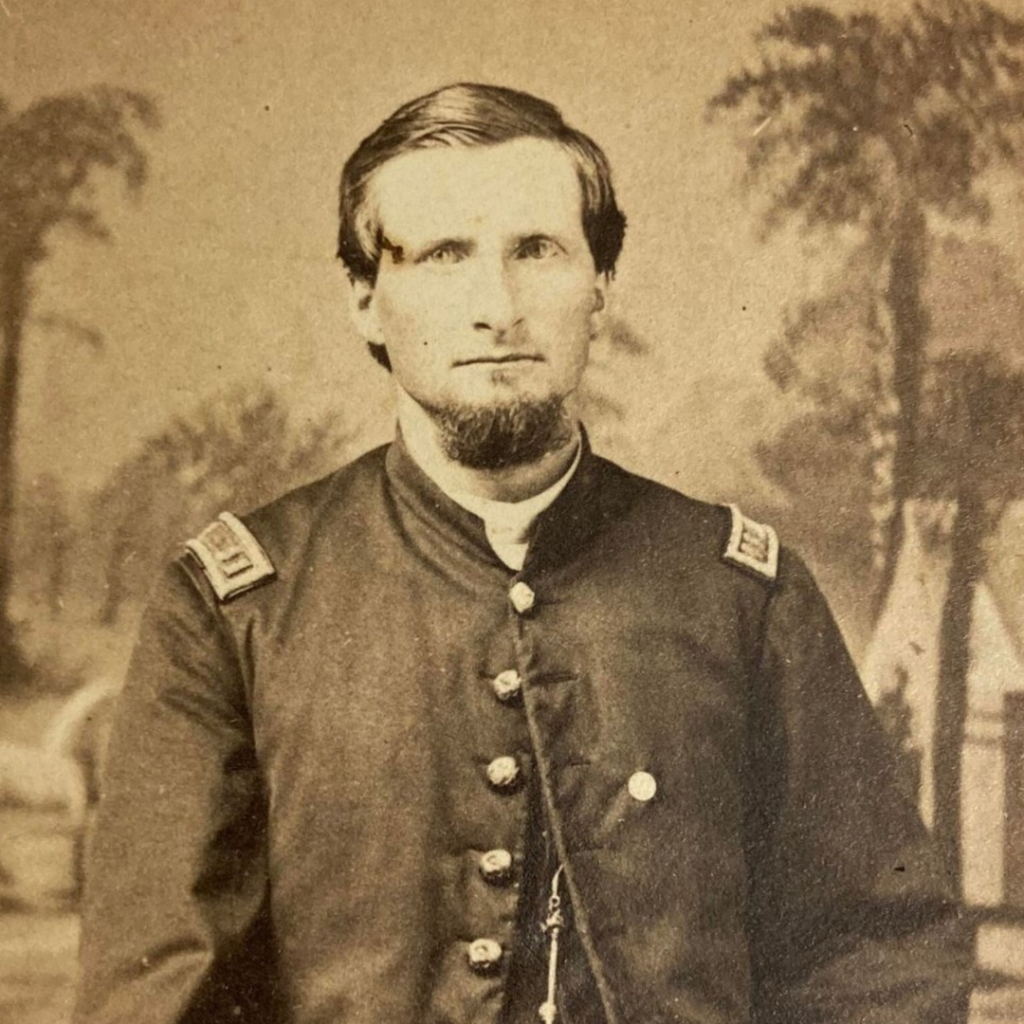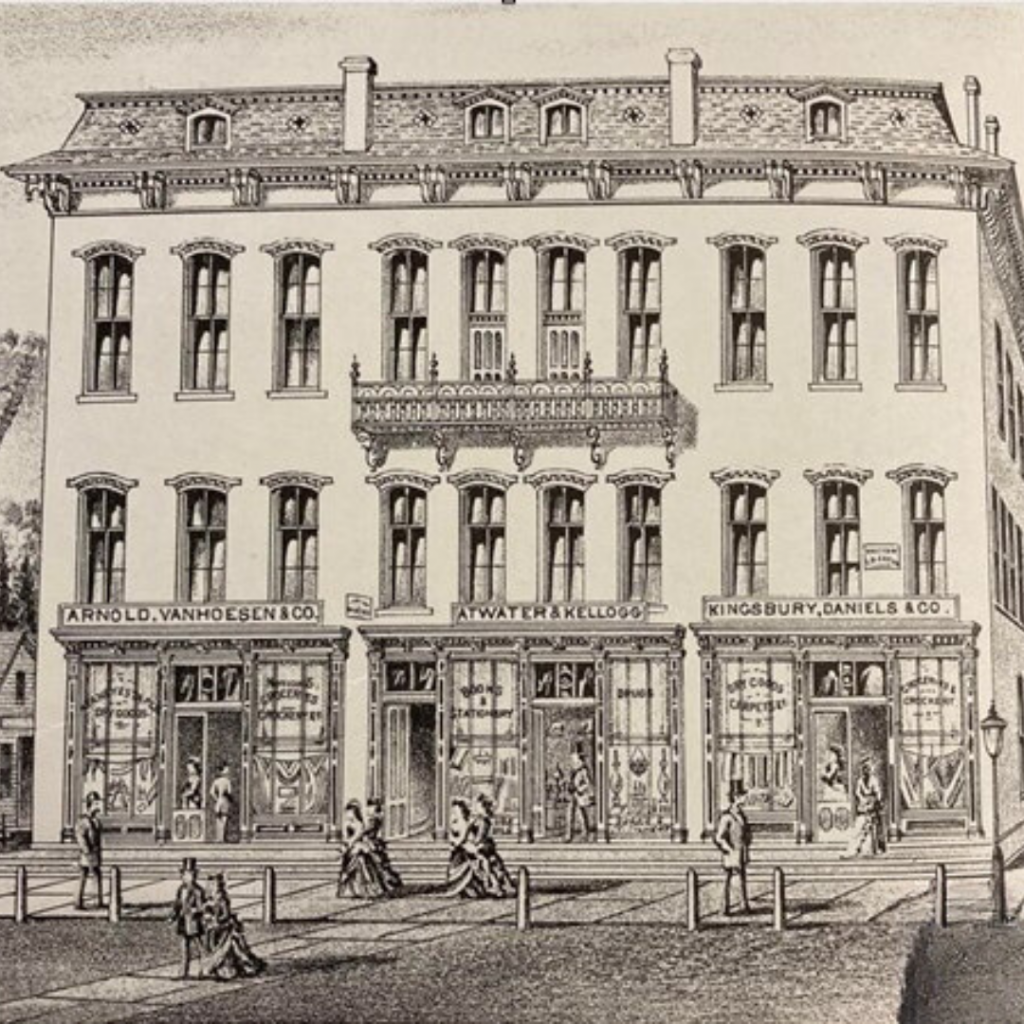 Joseph Clayton Atwater was born in Scott on March 8, 1837, the second child of Joseph Atwater and Lucy Brown. He is referred to as J. Clayton in most materials referenced, though he may have been called Clayton to distinguish him from his father. For clarity, we will use Clayton when referring to him. Two Atwater brothers came to the American colonies from England in the 1600s and settled in Connecticut. One brother’s family line died out, but the other had numerous descendants, of which J. Clayton Atwater was one.
Joseph Clayton Atwater was born in Scott on March 8, 1837, the second child of Joseph Atwater and Lucy Brown. He is referred to as J. Clayton in most materials referenced, though he may have been called Clayton to distinguish him from his father. For clarity, we will use Clayton when referring to him. Two Atwater brothers came to the American colonies from England in the 1600s and settled in Connecticut. One brother’s family line died out, but the other had numerous descendants, of which J. Clayton Atwater was one.Clayton’s grandfather was Joshua Atwater, who settled in Homer in the late 1790s. He was involved in the organization of the First Presbyterian Society of the town of Homer in 1797. This organization later merged into the First Religious Society of Homer. His son Joseph was born in 1813, just a year before Joshua died. Despite losing his father as a young child, Joseph grew up to become a teacher and a prominent citizen. Joseph Atwater was a member of the New York State Assembly from 1857-1858, the superintendent of schools for Cortland County, a justice of the peace, and he served on the town board of supervisors. He was remembered as honest, straightforward, upright, and highly esteemed. Joseph married Lucy Brown, and they had four daughters and one son. All but one of their children survived childhood and grew to adulthood.
Their son Joseph Clayton Atwater was educated at local district schools as well as at the Cortland Academy in Homer. He decided that he wanted to follow in his father’s footsteps, and he became a teacher at age 18, exactly as his father had. He spent the next several years teaching, and in 1860, he married Lucy Euretta Babcock, of Scott. It was a tenuous time in America, and on April 12, 1861, war erupted between the North and the South. Clayton continued to teach, but in September of 1862, he enlisted in the Union Army as sergeant, Company D, 157th New York Infantry. In March of the following year, he was advanced to second lieutenant. He was wounded at the Battle of Gettysburg on July 1, 1863, and on Christmas Day of that same year, he was promoted to captain of Company D. Atwater was discharged on December 21, 1865 for disability.
Clayton returned home in poor health. He worked on the farm and at a store while he recuperated, but he soon returned to teaching. He enjoyed teaching and was popular with students due to his kind and helpful nature. With the War out of the way, life returned to normal. Clayton and Euretta welcomed their only child, Frederick Clayton Atwater, into their family in 1866.
Although he enjoyed teaching, Clayton decided to leave the field, and in 1872, he went into the drug and stationary business with William A. Kellogg in Homer. Their store, Atwater and Kellogg, was first located on the corner of Main and Pine Streets, and they later moved to the Keator Block. After 15 years of partnership, Atwater bought out the interest of Kellogg and entered into a partnership with his son, F.C. Atwater. The new enterprise was called J.C. Atwater and Son, but it did not last long because Clayton’s declining health caused him to sell his share in the business to W.H. Foster. Clayton retired from business life and bought 112-acres three miles from the village. Here he enjoyed farming and dairying in his retirement years.

Throughout his life, Clayton engaged in his community in many ways. He served as the town clerk of Homer, and he was a member of the Board of Education for 15 years. He was a past master of Lodge No. 352 of the Freemasons. Atwater was a director and some time vice president of the First National Bank of Homer before the bank was consolidated with the Homer National Bank. One of his projects was to help organize the Empire State Improvement Company, an organization which purchased land in the Syracuse area that was then divided into lots and sold. Atwater was a member of the Congregational Church in Homer.
Clayton and Euretta lived at 3 Clinton Street in Homer for years, and it is there that Clayton took his last breath on March 19, 1905. After years of illness, his death was attributed to paresis, a slow wasting of his vitality. His funeral was held at the home, and his brothers from the Babcock Post of the G.A.R. (Grand Army of the Republic) acted as pall bearers and guard of honor for their fallen comrade. Because the roads were impassable, Atwater was taken to the vault at Glenwood Cemetery and later interred at Atwater Cemetery. Euretta followed him in death in 1909, and their only child, Frederick, followed in 1921 at the age of just 54.
J. Clayton Atwater was remembered warmly by friends “who admired his sterling qualities of character, his business ability, strong common sense and his loyalty to friends.” While he quietly rests his bones at Atwater Cemetery, we share his story with you to keep his memory from fading into oblivion. There is never a bad time to acknowledge our dead with a handful of wildflowers and a quiet trip to their grave to pay our respects. ~Tabitha Scoville, CCHS Director
